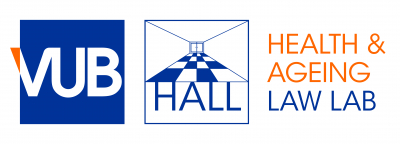Ongoing Projects
ECLIPSE >
The ECLIPSE project aims to prevent and combat both online and offline hate speech and mis/disinformation across Europe.
Start date: 01.09.2025
MAGENDA >
The MAGENDA project aims to support Asian HEIs in introducing and enforcing policies that promote gender equality and diversity at institutional level.
Start date: 01.11.2024
TumorScope >
The TumorScope project aims to build a digital health infrastructure for cancer research, combining real-world molecular, demographic and clinical data.
Start date: 01.11.2024
PLANET4Health >
The PLANET4Health project aims to generate new knowledge about environment degradation and its impact on human animal and ecosystems health.
Start date: 01.01.2024
CYMEDSEC >
The CYMEDSEC project aims to create new cybersecurity standards and improved regulatory processes for the industry in the EU healthcare sector.
Start date: 01.11.2023
SmartCHANGE >
The SmartCHANGE project aims to develop long-term risk prediction models for cardiovascular and metabolic diseases in children and teenagers.
Start date: 01.11.2023
PRO-GENDERING >
The PRO-GENDERING project aims to promote gender equality, inclusion, and diversity in university establishments and education communities.
Start date: 01.09.2023
BUTTERFLY (GERONTOPOLE) >
The BUTTERFLY project investigates factors contributing to frailty and interventions that optimise Active & Healthy Ageing in practice.
Start date: 01.04.2023
FACILITATE >
The FACILITATE project aims to provide an ethical and GDPR-compliant framework that facilitates the process of access and re-use of clinical trial data.
Start date: 01.01.2022
Completed Projects
SUN >
The SUN project aims to advance the social interactivity of XR technology by establishing scalable models with sustained virtual environments.
Start date: 01.12.2022
ARC II >
The ARC II project aims to assist entrepreneurs in GDPR compliance procedures, by introducing an innovative, interoperable digital tool for SMEs.
Start date: 02.09.2022
SOCIO-BEE >
The SOCIO-BEE project aims to develop low-cost technological innovations and instruments, contributing to the overall improvement of air quality in urban areas.
Start date: 01.10.2021
HosmartAI >
The HosmartAI project aims to promote an effective and efficient healthcare system transformation through use of AI and robotics.
Start date: 01.01.2021
TeNDER >
The TeNDER project aims to create an integrated care ecosystem to assist people with Alzheimer’s, Parkinson’s and cardiovascular comorbidities.
Start date: 01.11.2019
FASTER >
The FASTER project aims to investigate the role of first responders in disasters, taking into account the emergency preparedness and response lifecycle.
Start date: 01.05.2019
LOCARD >
The LOCARD project aims to procure a platform that allows storage of digital evidence data, ensuring appropriate chain custody in juridical work.
Start date: 01.05.2019
PROTEIN >
The PROTEIN project aims to develop a ICT-based system for personalised nutrition using analysis of dietary behavioural patterns and physical activity.
Start date: 01.12.2018
CYBER-TRUST >
The CYBER-TRUST project aims to develop an innovative cyber-threat intelligence platform ensuring a high level of security in the IoT ecosystem.
Start date: 01.05.2018
ALADDIN >
The ALADDIN project aims to study, design, develop, and evaluate a counter UAV system as a complete solution to the ever-increasing UAV threat problem.
Start date: 01.09.2017
TechCare >
The TechCare project aims to promote an ethically sound and practically viable adaptation of assisted living technologies in long term care for older people.
Start date: 01.09.2017
PICASO >
The PICASO project aims to become a EU-wide Continuum of Care service platform, fostering cooperation between professionals in health and social care.
Start date: 01.02.2016
FORENSOR >
The FORENSOR project aims to develop and validate a novel, ultra-low-power, miniaturised, wireless, autonomous sensor for evidence gathering.
Start date: 01.09.2015
MovingLife >
The MovingLife project aims to produce R&D roadmaps and policy recommendations for widespread use of mobile eHealth solutions.
Start date: 01.09.2011
VALUE-AGEING >
The VALUE-AGEING project aims to foster academia and industry cooperation for the incorporation of fundamental values of the EU in ICT for ageing.
Start date: 01.10.2010
REACTION >
The REACTION project aims to develop an interoperable, ICT-based platform for improved long term management of diabetes for patients across EU.
Start date: 01.03.2010

























